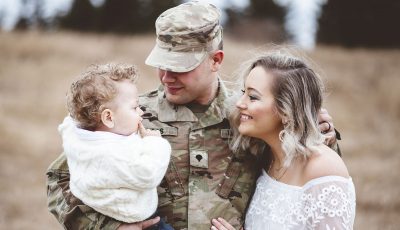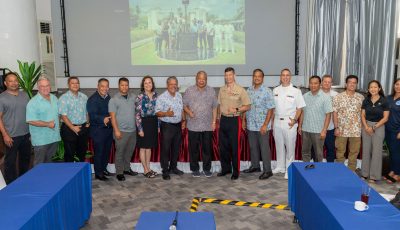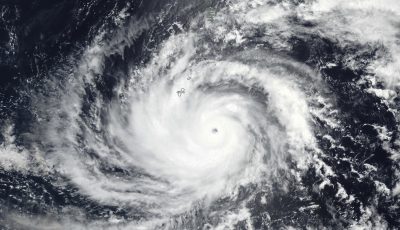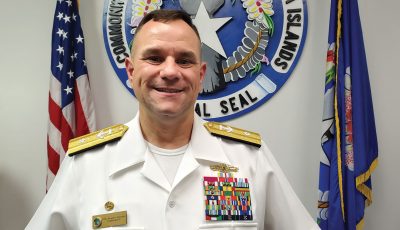‘Rick’s Column’
Intimate islands, islanders, and national security histories
The word “intimacy” is commonly used in the context of personal relations with our significant others. I want to introduce a second application of the idea of intimacy, used this time in the context of how our Chamorro Pacific Islander families have understood, related to, interpreted and experienced war, suffering, veterans’ affairs and military service.
Chamorro intimacy with American national security started in Guam at the beginning of the 20th century and expanded into the northern islands many years later. Our families became intimately familiar with the ravages of war as America and Japan took their fight to our ancient island chain. Our families fought fiercely to protect the American naval governor of Guam and many died, while other Chamorros protected George Tweed from being butchered by the Japanese military intelligence apparatus. Our relatives cared for one another daily, whether it was helping to gather or prepare food, or work as part of a forced labor group. Our Guam families were massacred at Fena, Tinta, Ta’i, Manenngon, Yigo and elsewhere, while our families from the northern islands were also intimately involved with war, assisting Japan with its fight against the United States in Guam, and being stuck in the middle of some of the fiercest fighting seen in the Pacific.
Our families from Tinian became intimately associated with war because the world’s only atomic bombing attack carried out by the United States against Japan launched from this island. Our families on Tinian and Saipan became intimately familiar with the co-sponsored Navy-CIA operations to train foreign fighters, and have seen American intelligence, paramilitary and special operations personnel come and go, throughout the northern islands up to present day.
Our entire Chamorro Pacific Islander civilization unknowingly became intimately exposed to radioactive poisoning, as over 100 U.S. government sponsored atomic and thermonuclear bomb tests took place nearby in Eastern Micronesia from the 1940s through the 1960s. Many of our relatives contracted rare cancers and diseases from war and post-war related military operations and from being in the path of poisonous radioactive debris downwind.
Chamorros intimately experienced the Vietnam conflict as thousands of Vietnamese refugees showed up in Asan, as Navy sponsored chemical spraying of DDT continued to take place throughout Guam killing many native bird species, and as our fathers, uncles, cousins, nephews, brothers, and friends came back in body bags from being killed in the jungles of Southeast Asia. Many veterans who fought in Vietnam have long been intimately familiar with PTSD, major physical ailments, mobility limitations, and not receiving a fair and equal shot at meriting the Medal of Honor.
This intimacy with national security also applies to experiences from Chamorros being involved in other conflicts such as Korea, Desert Shield-Desert Storm, smaller post-Cold War military actions worldwide and, most recently, Iraq and Afghanistan.
This collective intimacy that the Chamorro people of the Marianas Islands have had with international and national security and war over the past several decades represents in one way a present-day American loyalty and patriotism that is extensive, deep, complex, authentic, personal, ever expanding and uniquely Pacific Islander. It is a demonstrated intimacy that over time has conditioned our Pacific blue continent civilization to place American Navy and military statecraft ahead of ancient Chamorro social and linguistic norms, human health, and environmental concerns. It is also an intimacy that has not been fully recognized and formally acknowledged by the United States and the Pentagon, in the sense that the colonial administering power has formally and completely acknowledged all the blood spilled and fully understands the collective bravery demonstrated by the Chamorro people of the Marianas who have fought on behalf of America.
This complex colonial intimacy that our people have with national security contains many ironies, to include becoming well-adjusted to a variety of injustices, founded on many pillars to include the idea of being equal or more than equal in war, and subordinated in peace. It is an intimacy that institutionally restrains the Chamorro people from having full and equal decision-making authority on matters of fundamental American national political rights. It is also a national security intimacy with darker sides that are rarely discussed, such as the massive ongoing domestic surveillance state that is in place throughout the Marianas, overseen by American intelligence, military, private sector, media, and law enforcement communities using technical and human resource means to penetrate the total human environment.
Our intimacy with national security further extends to veterans’ affairs. Our veterans remain unable to readily access complete and comprehensive Veterans Administration “VA” sponsored medical care because there is no VA regional medical center located in the Marianas, despite a disproportionate number of veteran residents represented as a percentage to the total insular population. Thus this intimacy discriminates against Pacific Islander veterans who expected and believed that the United States would fully honor its commitment to provide complete medical and mental health care for all those who have served in uniform.
Today, our intimacy with American national security is now founded on the intergenerational Chamorro Pacific Islander legacy of continued outstanding service and disproportionate contributions made by our families as members of the armed forces, intelligence, and support communities of the American empire during war and peace. Today, many Chamorros continue to do very well in serving the American empire, and this has been partly driven by the intimate and deeply rooted associations we have grown accustomed to, as hard charging representatives and goodwill ambassadors from Guam, Rota, Tinian, Saipan, and Pagan, who have enacted honor, courage, and commitment in the service of fighting for American imperial interests worldwide. We must also never forget our fellow Chamorros who have died in combat or who have committed suicide from physical and mental injuries sustained from war as well.
Rick Perez (Special to the Saipan Tribune)
Rick Perez used to serve in the U.S. military and has work experiences in public policy research and public affairs. He is passionate about national security and geopolitics and runs a newsletter called Guam Affairs at guamaffairs.substack.com. For questions or comments, contact Perez at rickp7839@gmail.com.



























